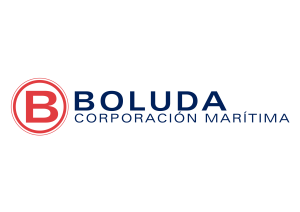Follow-up of the Regulation / Safety standards and rules
Ship OPS-ready statistics
Map of ports and terminals with OPS facilities in Spain
Network capacity: possible solutions
The main objective of OPS has traditionally been to improve air quality in the port environment by reducing pollution from ships, such as NOx, SOx, PM and other substances associated with onboard combustion processes. The technology also allows for a reduction of greenhouse gases emitted by ships during their stay in port, which in turn requires that the electricity supplied comes from renewable sources. It is a technology with great potential for achieving decarbonisation in ports that will be deployed in a very significant way in the European Union in the coming years.

Follow-up of the Regulation / Safety standards and rules
Ship OPS-ready statistics
Map of ports and terminals with OPS facilities in Spain
Network capacity: possible solutions

Electricity price in port
Exemptions or incentive mechanisms
Business model
Meetings with legislators

Workshops on existing technological solutions by type of vessel
Seminars on regulatory framework
Seminars on financing mechanisms for OPS projects in port and ship retrofits
Debate on supply to ferries: low vs. medium voltage, pros and cons for shipping lines and terminals


Industrial Technical Engineer from the University of Las Palmas de GC with 30 years of experience in the electricity sector within the Endesa Group.
He began his career in Endesa Generación, with the design, construction and operation of thermal power plants in the Canary Islands.
Subsequently, he worked in the commercial area of Endesa Energia as head of large customer accounts in the Canary Islands, where he advised Public Administrations and companies on the purchase of energy, as well as on the implementation of energy efficiency measures.
He is currently responsible for business development of Ports in Endesa Energia for the national implementation of OPS systems, as well as efficiency and decarbonisation projects.


Procurement Manager | Specialist in Port Operations and Sustainability
With over 15 years of experience in the maritime sector, he has led the development and implementation of sustainable solution projects such as OPS / Cold ironing, particularly excelling during his tenure as Regional Operations Manager at Mediterranean Shipping Company (MSC), where he drove the integration of these technologies in ports in Spain, North Africa, and Malta. His focus has always been on promoting a transition towards cleaner and more efficient maritime transport.
His education in Political Science and Public Administration has provided him with a solid understanding of public policies, with a particular interest in the European Union’s sustainability initiatives and their impact on the sector. Currently, as Procurement Manager at Boluda Lines, he continues to promote port electrification and energy efficiency projects, working closely with authorities and key stakeholders to drive innovation and advance environmental goals.